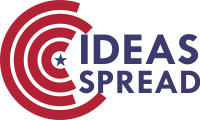Constructivist e-Portfolios Empowering Transformative Learning of English Language
Abstract
The research about e-Portfolios has continued to increase exponentially, although much of the study is overlooking ground research in primary sources. In order to stimulate the need, in-depth analysis of e-Portfolios functions in transformative learning is constructed. Methodologically, this article employs thematic approach to analyse the transcript from two focus-group interviews into four themes. They include learning-focused behaviors,affective dimension, learning styles and Cognitive engagement. the findings reported.
Downloads
References
Barrett, H., & Carney, J. (2005). Conflicting paradigms and competing purposes in electronic portfolio development. Task Stream web site, 295-314.
Batson, T. (2018). The eportfolio idea as guide star for higher education. AAEEBL ePortfolio Review,2(2), 9-11.
Boas, V. V., Boff, B. C., & Sauer, L. Z. (2022). Conceptual Maps: A Tool for Assessing the Meaningful Learning of Engineering Students in a Pre-Calculus Course. Acta Scientiae, 24(7),78-115. https://doi.org/10.17648/acta.scientiae.7178.
Ciesielkiewicz, M., Wisser, W., & Rozells, D. (2019). International perspectives on ePortfolios in higher education: Case studies from Asia, North America and Europe. International Journal of Emerging Technologies in Learning, 14(21), 96-109. https://doi.org/10.3991/ijet.v14i21.11048
Clarke, J. L., & Boud, D. (2018). Refocusing portfolio assessment: Curating for feedback and portrayal. Innovations in Education and Teaching International, 55(4), 479–486. https://doi.org/10.1080/14703297.2016.1250664
Creswell, J. W. (2014). A concise introduction to mixed methods research. SAGE publications.
DeLozier, S.J., Rhodes, M.G. Flipped Classrooms (2017). a Review of Key Ideas and Recommendations for Practice. Educ Psychol Rev 29, 141–151. https://doi.org/10.1007/s10648-015-9356-9
Freeman S, Eddy SL, McDonough M, Smith MK, Okoroafor N, Jordt H, Wenderoth MP (2014). Active learning increases student performance in science, engineering, and mathematics. Proc Natl Acad Sci U S A. 2014 Jun 10;111(23):8410-5. https://doi.org/10.1073/pnas.1319030111
Katebi, M., Ahmadi, A. A., Jahani, H., Mohalli, F., Rahimi, M., & Jafari, F. (2020). The effect of portfolio training and clinical evaluation method on the clinical competence of nursing students. Journal of Nursing and Midwifery Sciences, 7(4), 233-233. https://doi.org/10.2147/AMEP.S231760
Khajeloo, M., Birt, J. A., Kenderes, E. M., Siegel, M. A., Nguyen, H., Ngo, L. T., Mordhorst, B. R., & Cummings, K. (2022). Challenges and Accomplishments of Practicing Formative Assessment: a Case Study of College Biology Instructors’ Classrooms. International Journal of Science and Mathematics Education, 20(2), 237–254. https://doi.org/10.1007/s10763-020-10149-8
Kuh, G. D., Gambino, L. M., Bresciani Ludvik, M., & O’Donnell, K. (2018). Using ePortfolio to document and deepen the impact of HIPs on learning dispositions (Occasional Paper No. 32). Urbana, IL: University of Illinois and Indiana University, National Institute for Learning Outcomes Assessment (NILOA).
Harun, R. N. S. R., Hanif, M. H., & Choo, G. S. (2021). The pedagogical affordances of e-portfolio in learning how to teach: A systematic review. Studies in English Language and Education, 8(1), 1–15. https://doi.org/10.24815/siele.v8i1.17876
López-Crespo, G., Blanco-Gandía, M. C., Valdivia-Salas, S., Fidalgo, C., & Sánchez-Pérez, N. (2022). The educational ePortfolio: preliminary evidence of its relationship with student’s self-efficacy and engagement. Education and Information Technologies, 27(4), 5233–5248. https://doi.org/10.1007/s10639-021-10827-2
Marton, F., & Booth, S. (1997). Learning and awareness. Lawrence Erlbaum.
Marinho, P., & Delgado, F. (2019). A Curriculum in Vocational Courses: The Recognition and (Re)Construction of Counterhegemonic Knowledge. Educational Forum, 83(3), 251–265. https://doi.org/10.1080/00131725.2019.1599650
Nguyen, Q. D., Fernandez, N., Karsenti, T., & Charlin, B. (2014). What is reflection? A conceptual analysis of major definitions and a proposal of a five-component model. Medical Education, 48(12), 1176–1189. https://doi.org/10.1111/medu.12583
Roco, M., & Barberà, E. (2022). ePortfolio to promote networked learning: an experience in the Latin American context. International Journal of Educational Technology in Higher Education, 19(1). https://doi.org/10.1186/s41239-022-00336-8
Rocha, K. S. S., Cerqueira Santos, S., Boaventura, T. C., dos Santos Júnior, G. A., de Araújo, D. C. S. A., Silvestre, C. C., ... & de Lyra Júnior, D. P. (2020). Development and content validation of an instrument to support pharmaceutical counselling for dispensing of prescribed medicines. Journal of Evaluation in Clinical Practice, 26(1), 134-141. https://doi.org/10.1111/jep.13102
Rhodes, R. E., Boudreau, P., Josefsson, K. W., & Ivarsson, A. (2021). Mediators of physical activity behaviour change interventions among adults: a systematic review and meta-analysis. Health psychology review, 15(2), 272-286. https://doi.org/10.1080/17437199.2019.1706614
Segaran, M. K., & Hasim, Z. (2021). SELF-REGULATED LEARNING THROUGH ePORTFOLIO: A META-ANALYSIS. Malaysian Journal of Learning and Instruction, 18(1), 131–156. https://doi.org/10.32890/MJLI2021.18.1.6
Smolyaninova, O. G., & Bezyzvestnykh, E. A. (2019). Professional training of teacher 4.0: Developing digital competency by means of ePortfolio. Журнал Сибирскогофедерального университета. Серия: Гуманитарные науки, 12(9), 1714-1732. https://doi.org/10.17516/1997-1370-0478
Syzdykova, Z., Koblandin, K., Mikhaylova, N., & Akinina, O. (2021). Assessment of ePortfolio in Higher Education. International Journal of Emerging Technologies in Learning, 16(2), 120-134. https://doi.org/10.3991/ijet.v16i02.18819
Tyler, R. W. (1949). Basic principles of curriculum and instruction. Chicago: University of Chicago Press.
Wood, D. F. (2018). Formative assessment: Assessment for learning. Understanding medical education: Evidence, theory, and practice, 361-373. https://doi.org/10.1002/9781118472361.ch23
Yacek, D., Rödel, S. S., & Karcher, M. (2020). Transformative Education: Philosophical, Psychological, and Pedagogical Dimensions. Educational Theory, 70(5), 529–537. https://doi.org/10.1111/edth.12442
Yancey, K. B. (Ed.). (2019). ePortfolio as curriculum: Models and practices for developing students' ePortfolio literacy. Stylus Publishing LLC.

This work is licensed under a Creative Commons Attribution 4.0 International License.
Copyright for this article is retained by the author(s), with first publication rights granted to the journal.
This is an open-access article distributed under the terms and conditions of the Creative Commons Attribution license (http://creativecommons.org/licenses/by/4.0/).









1.png)









1.png)











